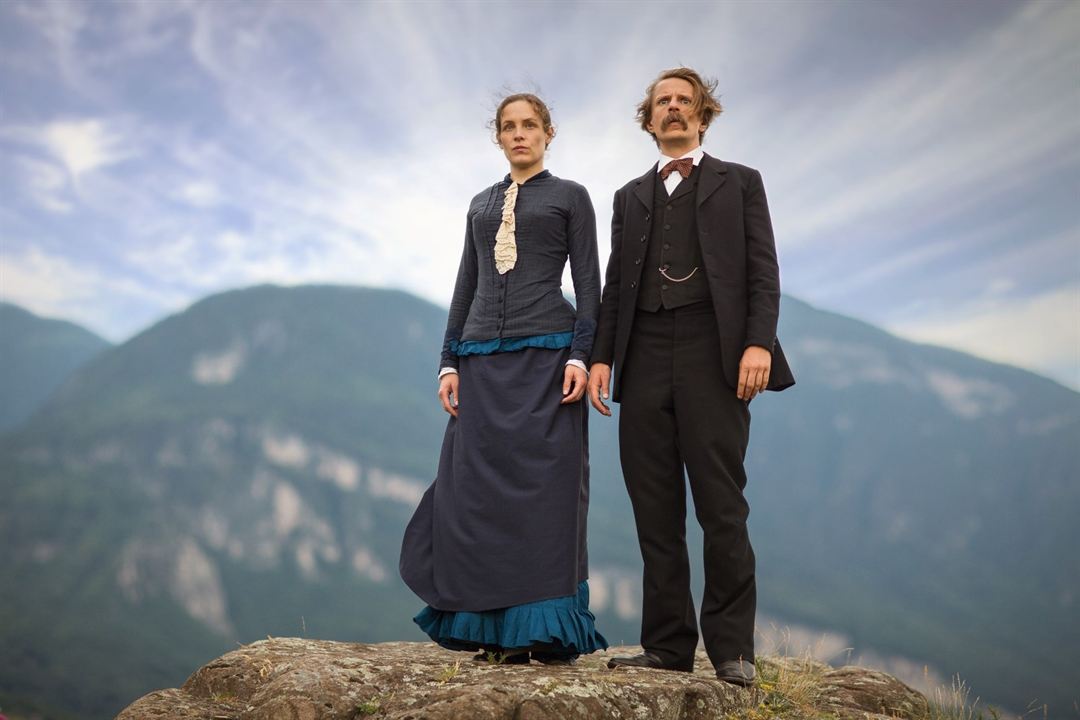
LOU ANDREAS-SALOMÉ: The Audacity to be Free
Cinema Libre Studio
Reviewed by: Harvey Karten
Director: Cordula Kablitz-Post
Screenwriter: Cordula Kablitz-Post, Susanne Hertel
Cast: Katharina Lorenz, Nicole Heesters, Liv Lisa Fries, Merab Ninidze, Katharina Schüttler, Alexander Scheer
Screened at: Critics’ link, NYC, 4/11/18
Opens: April 20, 2018 in New York’s Village East Cinema and April 27, 2018 in LA’s Laemmle’s Royal Theater
The only thing about this film that lacks imagination is the title “Lou Andreas-Salomé.” If you were creating a biopic, would you title it simply with the name of the principal person (albeit with a subtitle “The Audacity to be Free”)? A more appropriate heading would be “Apollo vs. Dionysus: The Life and Times of Lou Andreas-Salomé. This intriguing encounter that we in our theater seats have been graciously afforded, is of a person who may be fairly unknown here in the States. Yet given her intelligence, she could hold her own with Freud and Nietzsche, that intellect propelled by her inner conflict between the Apollonian (rationalism, logic) and the Dionysian (emotions, chaos). Because she was an early feminist who drew women from her own upper class to her readings, she faced the anger of her mother, particularly as the older woman, a nice Protestant mom, wanted grandchildren, and the little ones would “keep you well occupied.” And hopefully the little ones would not challenge a pastor in church who said “God is everywhere,” getting the retort “Is God in Hell also?”
While the first psychoanalyst is the biblical Joseph who interpreted Pharaoh’s dreams, Andreas-Salomé, some years later, is the first female psychoanalyst, gaining insight into her own conflicts through explorations of her psyche as required of people in her field. She is also a poet, a novelist, an essayist and a biographer as cited in a Wikipedia article, though thankfully director Cordula Kablitz-Post, using her own screenplay with co-writer Susanne Hertel, does not list her accomplishments in that vein like a laundry list. Instead, the film tracks key points in her life, with brief attention to her childhood (Helena Pieske), her teens (Liv Lisa Fries), her middle years (Katharina Lorenz), and her older and still wiser self (Nicole Heesters).
Filmed by Matthias Schllenberg in Germany (Lower Saxony, Ludwigsburg, Potsdam) , Vienna, Trentino-Alto Adige in Italy), and from time to time with a striking visual effect revealing scenery with characters walking through what looks like a trompe l’oeil, “Lou Andreas-Salomé” is thematically consistent throughout. We see a woman who at first with no problem struggling through a conflict despite the oppressive conventions of her time. She is determined never to marry, never to be intimate, never to be subjected to the will of any man. She believes, as well, that intimacy comes with a price: erotic closeness would curtain her intellectual development. It takes time for her to reconsider, giving herself to a man first in her early thirties. And her marriage to Friedrich Carl Andreas (Merab Ninidze), a scholar without much personality, remains unconsummated as she demands. It seems that men could not get enough of her, despite her requiring Platonic relationships, with no less than Friedrich Nietzsche (Alexander Scheer with a bushier mustache than John Bolton), and Paul Rée (Philipp Haus) who competes with Nietzsche for her attentions. Still they agree to hang out as a threesome.
Her world turns around when she meets Rainer Maria Rilke (Julius Feldmeier). Passion is unleashed. As we watch her ecstasy during their lovemaking and the smile she sports throughout the next day with her hair down, we simply know that she will be carrying on affairs with many others, including a young doctor Pineles (Daniel Sträser) and possibly even Dr. Sigmund Freud (Harald Schrott), who wonders whether she is a classic narcissist.
The flawless acting does credit to its central character, and the men in her life exude various degrees of emotion while trying their best to repress their sexual needs. What the film evokes ultimately is that you can be a feminist, an intellectual, a writer, even a hard-to-get player, and still maintain around you an array of men who would do anything—bring her flowers, cut their wrists, divorce their wives, write over-the-top poetry—just to revel in the aura she exudes.
Unrated. 118 minutes. © 2018 by Harvey Karten, Member, New York Film Critics Online
Story – A-
Acting – A
Technical – A-
Overall – A-





